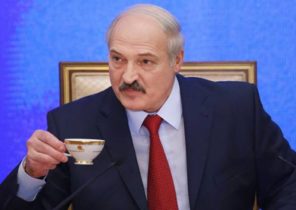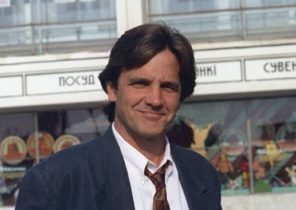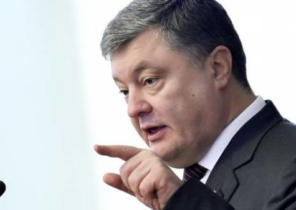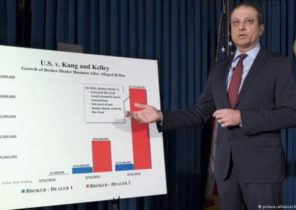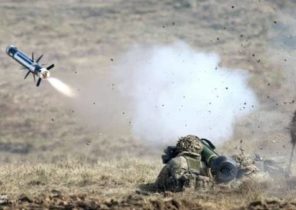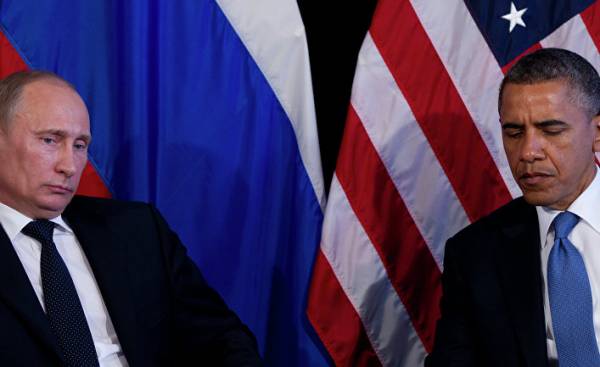
After the end of the cold war, America beats with the Russian question and trying to tame the new Russia, helping her, restraining or punishing her. Anyway, to find a magical solution still failed. What to do with the Russian-American relations? Washington went too far? Or maybe not Doge?
Since 1991, the debate around American foreign policy does not abate the opposition supporters to promote the modernization of Russia (it is supposed to lead to democratization), in favour of the rigidity of the hawks and the representatives of the so-called realistic school. They are urged not to interfere in Russian domestic policy, and to cooperate on specific issues, without imposing “our values”.
From bill Clinton to George W. Bush and Barack Obama all US presidents have tried to solve Russian puzzle.
In comparison with the two further developments of the mandate of Boris Yeltsin look like the era of this diplomatic euphoria. After the collapse of the Soviet Empire, Yeltsin’s Russia took a course to the West and democracy. She almost grimaced, accepted the independence of the Baltic, Caucasian and Central Asian republics and even Ukraine that does not resemble the situation in neighboring Yugoslavia, where Slobodan Milosevic began a series of calamitous wars in the quest to regain. Present and trust the rapprochement seemed to never close. Bill Clinton and Boris Yeltsin got along very well and did not hide it…
However, as the domestic Russian reform turned into the looting of the country, re-entered the old autocratic and neo-Imperial tendencies. The shelling of Parliament in 1993, war in Chechnya and chaos oligarchic wars, little by little buried democracy in Russia, leaving only a bitter aftertaste of missed opportunities… In any case, the Russians were all tired, and they blamed their troubles on the West. They were weakened, with nostalgic reminiscing about old times, and was furious at the intervention of the West in the Balkans, where they once greeted as saviors. They felt themselves to be devotees. Putin also began to act in the key of their disappointment and put an end to the Western adventure of Russia.
In Washington, every President beginning with the fact that declared its predecessor guilty in the failure of the Russian-American dialogue. So, Bush was trying to restore relations with Moscow, “looking into the eyes” of Putin and “seeing his soul.” Obama, in turn, five years have sought to erase the memory of serious tensions of the Bush era, we should live soberly leaving the veil at the Russian-Georgian war of 2008 and declared a “reset” of relations between the two countries. His advisors were convinced of the possibility to establish contacts by isolating the potential of the dialogue (nuclear disarmament, Iran) from the growing tensions in connection with the aggressive behavior of Russia in Europe.
Obama even presented a “reboot” as a great achievement of its foreign policy during the campaign for re-election. Anyway, all finally collapsed in 2014 with the annexation of Crimea by Moscow and armed destabilization of Eastern Ukraine. Obama sought to make a bet on Asia, but was forced to re-invest military resources in Europe. In relations between Washington and Moscow once again confirmed the cold war or, rather, hot world. After a strong course of Putin on the Syrian field, Obama realized that the confrontation has no geographical boundaries. The Russian partner actually became a ubiquitous structural enemy.
“You can just search reflecting the position of the Kremlin Russian newspaper to understand that Russia this year already is a cold war against the West. We just didn’t realize it. Only changed what is now the United States has the resolve to answer,” — said the former Ambassador and now a senior fellow at the Atlantic Council John Herbst (John Herbst). In particular, he has in mind the adoption of new sanctions against Russia in response to hacker interference in the presidential election. In his opinion, the visit of the Vice-President of a Penny in the Baltic States and the tightening tone of Washington on the Ukrainian question confirmed that trump will follow this trend, “although he had other inclinations,” and he tries to cooperate with Putin in Syria.
“The failure of the strong partnership of the USA and Russia were mainly related to aggressive conduct towards neighbours, says former Ambassador Dan fried (Dan Fried), which he held responsible posts in the state Department under Bush and Obama. — For the success of Russian-American relations we need to accept that the Russians are constantly demanded from us, but that was unacceptable to us: the restoration of their dominance over the neighbours.” “Clinton, Bush and Obama tried openness to Russia, not giving it such right, because it would be completely unacceptable for any assignment of the President of the United States… overall, the Russian new Yalta and humble neighbors,” said fried.
The former diplomat believes that trump may have been tempted to succumb to Putin’s appeals, but he was interrupted “Congress and suspicions about his own relations with Russia.” According to him, the impressive response of Putin strangely reminiscent of the “middle of 1980-ies, when Moscow was hoping to play the victim, and to inflame, to divide Europe and the United States.” “Then they greatly overestimated his strength and eventually lost in the cold war. I think it could happen again. Yes, we have now the crisis the head of state, but our Foundation of strong, while Russia is very weak, both in economic and political terms. If we keep a United front with Europe against Putin, he will lose this battle,” predicts fried. John Herbst held the same opinion: “the Russian elite ultimately recognizes the unsustainability of confrontation with the West, which it draws Putin. The question is when it will happen. After a couple of months or in 20 years.” Without technology and development, “Russia will fail. She needs the West,” he says.

